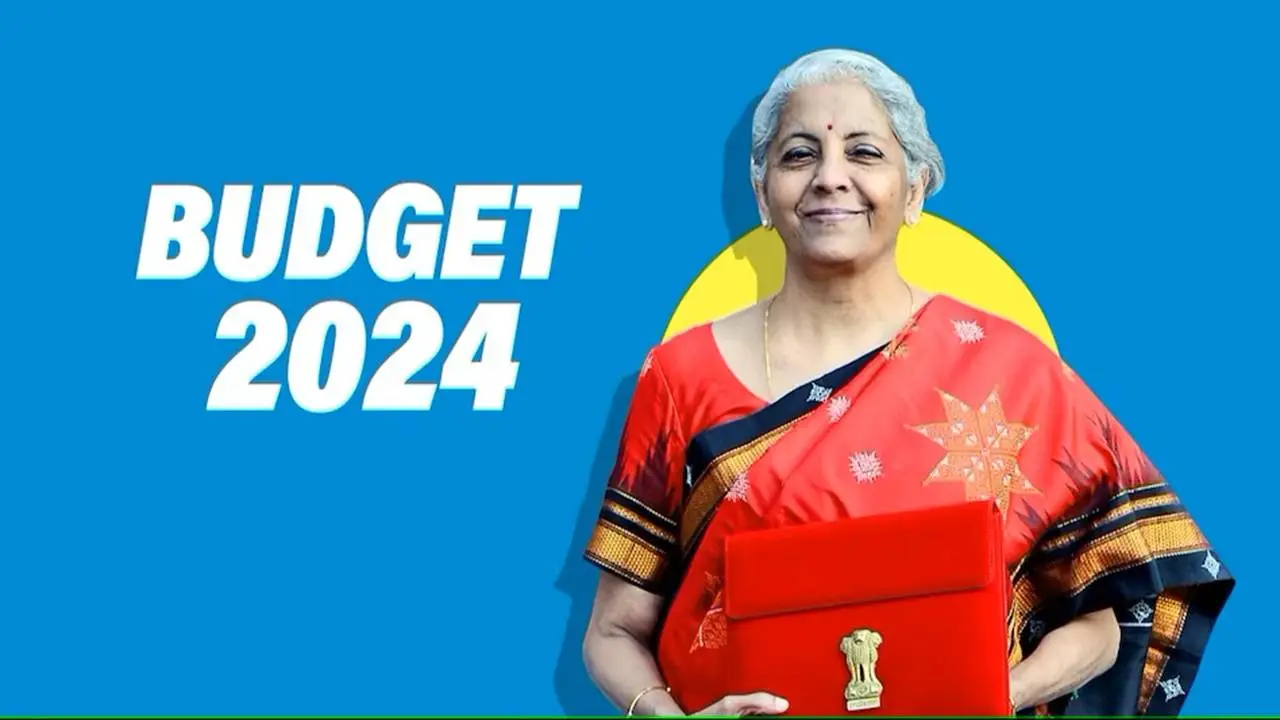
On July 23, 2024, Union Finance Minister Smt. Nirmala Sitharaman presented the Union Budget for the fiscal year 2024-25 in Parliament. This budget outlines the government’s financial strategy and priorities for the upcoming year, detailing the financial allocations, policy directions, and initiatives aimed at boosting economic growth, supporting key sectors, and addressing social needs.

Union Budget Estimates for 2024-25
The Union Budget for 2024-25 shows the government’s approach to managing the economy and maintaining fiscal discipline. The total receipts, excluding borrowings, are projected at ₹32.07 lakh crore, while total expenditure is estimated at ₹48.21 lakh crore, indicating a significant gap that requires careful financial management.
- Fiscal Deficit: The fiscal deficit is targeted at 4.9% of GDP, with plans to reduce it below 4.5% by the next fiscal year, reflecting the government’s commitment to fiscal responsibility.
- Inflation: Core inflation (excluding food and fuel) stands at 3.1%, showing a positive trend toward the target inflation rate of 4%, contributing to economic stability and consumer confidence.
- Focus Areas: The budget focuses on employment, skilling, support for micro, small, and medium enterprises (MSMEs), and the middle class to address key economic challenges and support inclusive growth.
Prime Minister’s Package for Employment and Skilling
A major highlight of the Union budget is the Prime Minister’s Package, introducing five schemes aimed at creating job opportunities and enhancing skilling initiatives for 4.1 crore youth over the next five years.
- Scheme A – First Timers: Provides a one-month salary of up to ₹15,000 in three instalments to first-time employees registered with the Employees’ Provident Fund Organisation (EPFO).
- Scheme B – Job Creation in Manufacturing: Offers incentives for job creation in the manufacturing sector, with subsidies for EPFO contributions during the first four years of employment.
- Scheme C – Support to Employers: Reimburses up to ₹3,000 per month for two years for each additional employee hired.
- New Skilling Scheme: Aims to skill 20 lakh youth over five years, upgrading 1,000 Industrial Training Institutes (ITIs) and offering internships in 500 top companies.
Nine Budget Priorities for ‘Viksit Bharat’

The Union budget outlines nine key priorities to drive progress under the vision of ‘Viksit Bharat’ (Developed India):
- Agriculture: ₹1.52 lakh crore allocated for agriculture, introducing high-yielding crop varieties and natural farming practices.
- Employment and Skilling: Includes employment-linked incentive schemes and initiatives to increase women’s workforce participation.
- Human Resource Development and Social Justice: Development of industrial nodes, power projects, and support for women-led development.
- Manufacturing and Services: Credit guarantee scheme for MSMEs, enhanced Mudra loan limits, and e-commerce export hubs.
- Urban Development: Investment in urban housing under PM Awas Yojana Urban 2.0 and development of street food hubs.
- Energy Security: Policy on Energy Transition Pathways, research on nuclear reactors, and advanced thermal power plants.
- Infrastructure: Central and state government infrastructure investments, including flood mitigation projects.
- Innovation and Research: Anusandhan National Research Fund for research and prototype development, and a venture capital fund for the space economy.
- Next Generation Reforms: ULPIN for rural land, digitization of urban land records, and integration of e-ashram portal for labor services.

Defence Budget Highlights
The defence sector receives ₹5.63 lakh crore, reflecting the government’s commitment to national security and modernization.
- Defence Modernization: Upgrading military technology and capabilities, procurement of advanced weapon systems, and investment in research and development.
- Personnel Welfare: Improved healthcare, housing facilities, and retirement benefits for armed forces personnel.
- Strategic Initiatives: Enhanced surveillance systems, cybersecurity measures, and infrastructure development along borders.
- Infrastructure Development: Investments in military bases and logistics networks.
- Research and Development: Funding for indigenous defence technologies to reduce dependency on foreign suppliers.
Items That Became Cheaper
| Items | Details |
| Mobile Phones | Customs duty on mobiles, chargers, and accessories reduced to 15%. |
| Gold and Silver | Customs duty on gold and silver lowered to 6%, and on platinum to 6.4%. |
| Cancer Treatment Drugs | Exemption from basic customs duty for three cancer treatment drugs. |
| Ferro Nickel and Blister Copper | Basic Customs Duty removed on these items. |
| Solar Panel Manufacturing | Expanded list of exempted capital goods for solar panel manufacturing. |
| Critical Minerals | Full customs duty exemption on 25 critical minerals. |
| Shrimp and Fish Feed | Customs duty reduced to 5%. |
| Leather Goods | Customs duty cut. |
| X-ray Machines | Reduced duty on X-ray machines for medical, surgical, dental, or veterinary use. |
Items That Became Costlier
| Items | Details |
| Telecom Equipment | Basic customs duty on certain telecom equipment increased from 10% to 15%. |
| Plastic Products | Higher customs duty imposed on plastic products. |
| Ammonium Nitrate | Duty raised from 7.5% to 10%. |
| Imported Garden Umbrellas | Increased customs duty. |
| Laboratory Chemicals | Higher duty on laboratory chemicals. |
New Tax Regime Benefits
| Benefits | Details |
| Standard Deduction for Salaried Employees | Increased from Rs 50,000 to Rs 75,000. |
| Capital Gains Exemption Limit | Increased to Rs 1.25 lakh per year for certain financial assets. |
Conclusion
The Union Budget 2024-25 presents a comprehensive approach to managing India’s economic and fiscal priorities, focusing on employment, skilling, infrastructure, and strategic investments. With substantial financial allocations for agriculture, urban development, and energy security, the budget aims to drive sustainable growth and development. The updates in tax structures and emphasis on defence modernization further highlight the government’s commitment to fostering a robust and resilient economy.
Also read Will 8th pay commission be announced?





